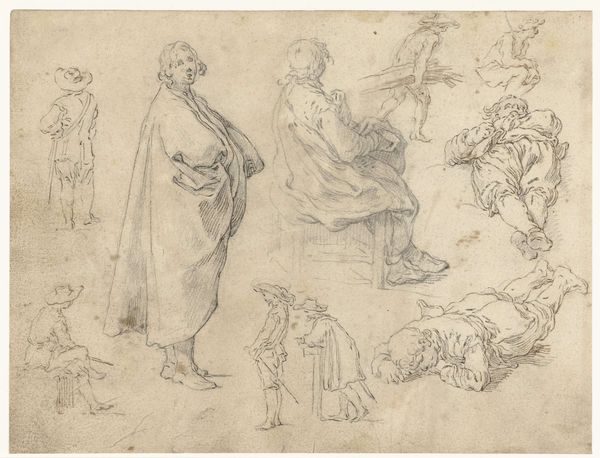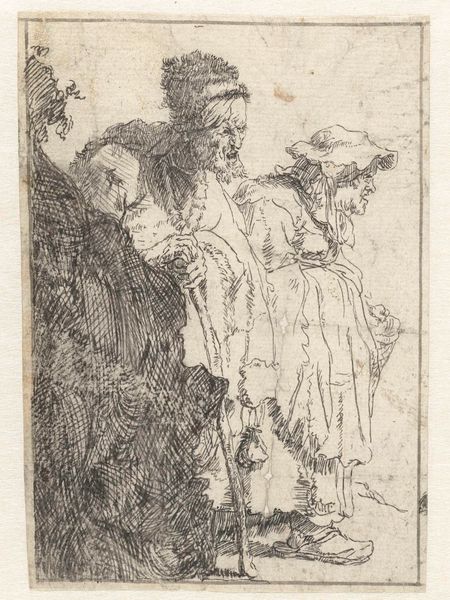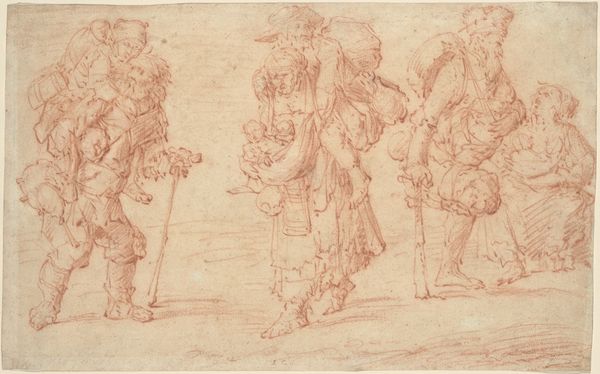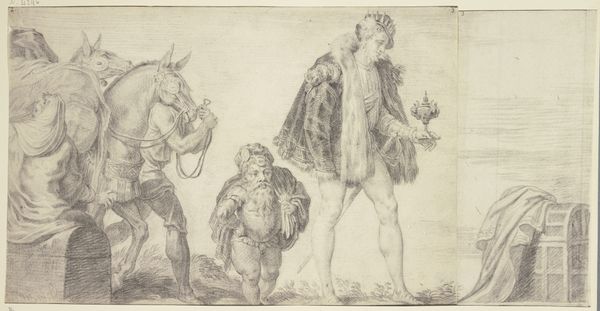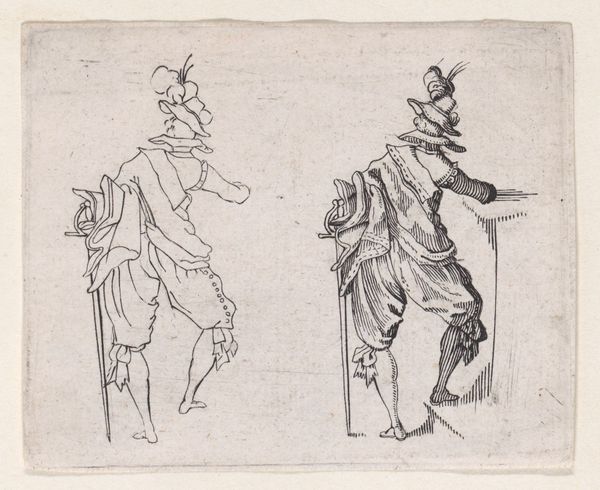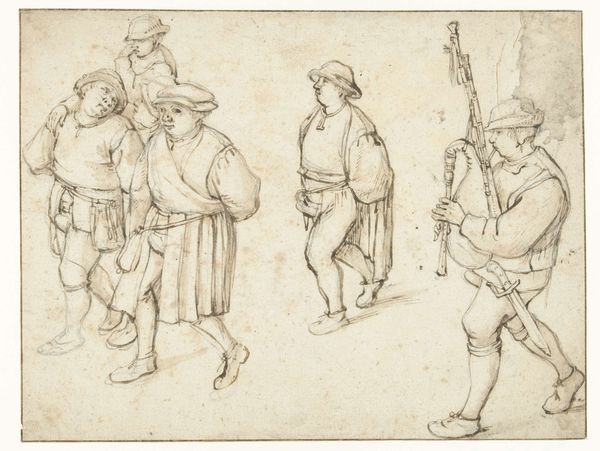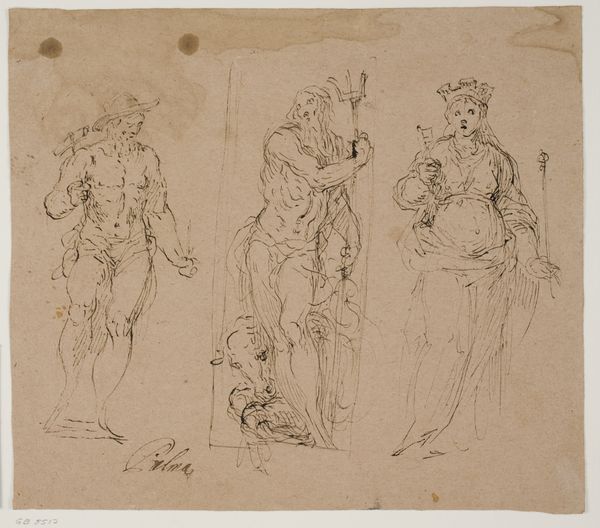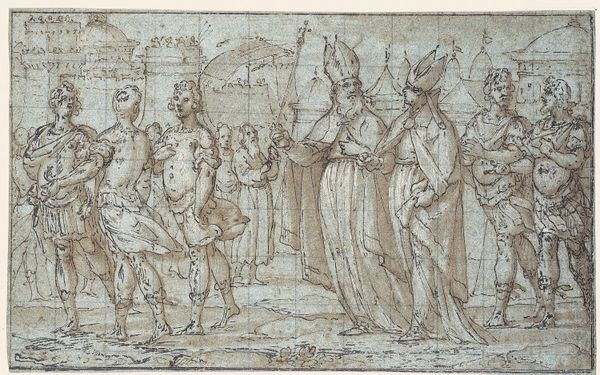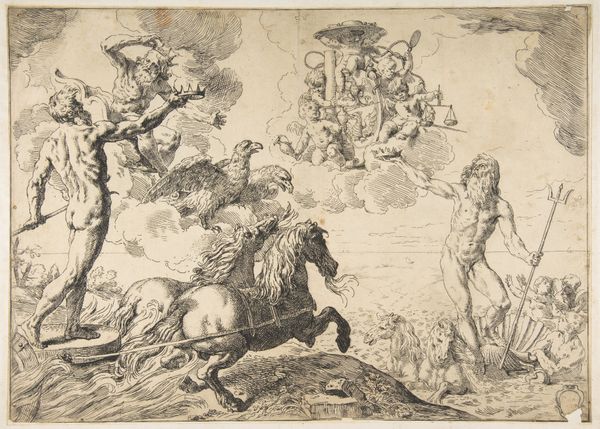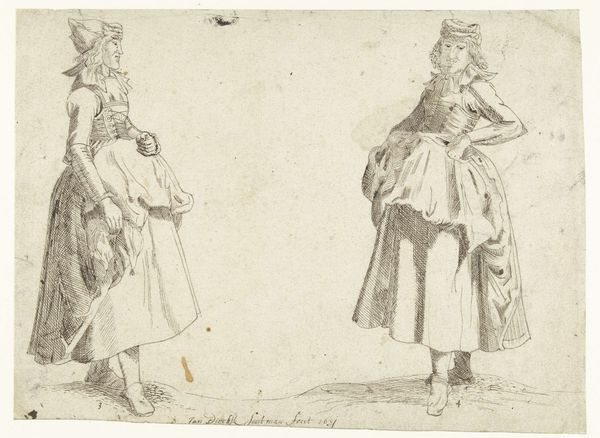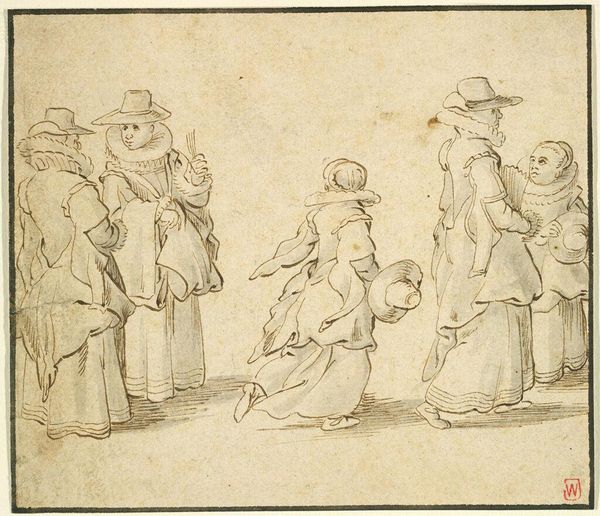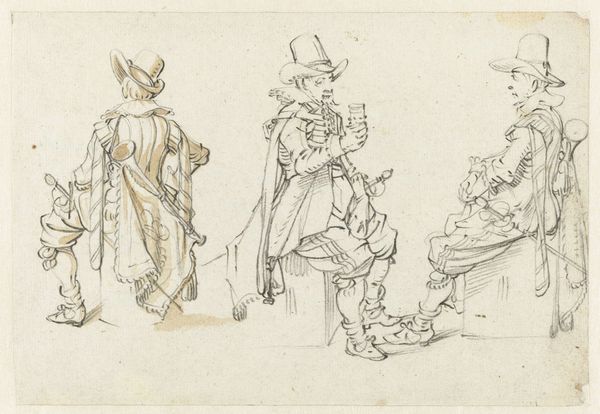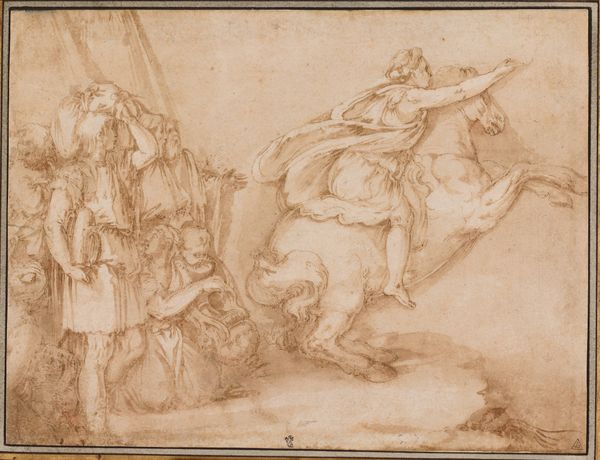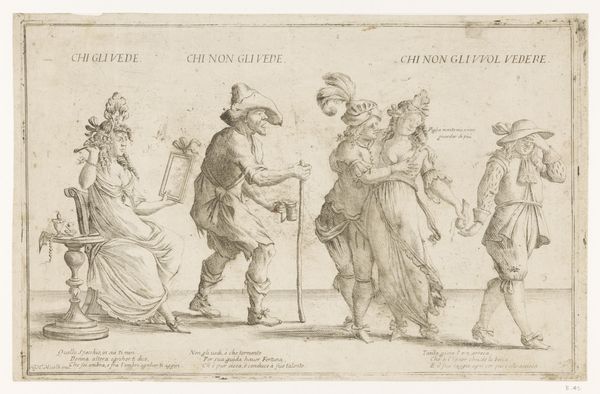
Sheet with Figure Studies (double sided) 1615 - 1647
0:00
0:00
drawing, paper, ink, pen
#
drawing
#
baroque
#
figuration
#
paper
#
ink
#
pen-ink sketch
#
men
#
sketchbook drawing
#
pen
#
history-painting
#
sketchbook art
Dimensions: sheet: 8 7/8 x 12 in. (22.6 x 30.5 cm)
Copyright: Public Domain
Editor: Here we have a double-sided sheet of figure studies, ink on paper, by Pietro Novelli, likely dating from between 1615 and 1647. It feels like a whirlwind of activity, of ideas being rapidly sketched out. What catches your eye in this piece? Curator: The immediate power resides in the central female figure and the suggestion of a severed head. Its association with Salome is potent; a recurring theme that carries significant cultural weight – the seductive, dangerous woman, the power of female agency twisted and demonized. It speaks to anxieties about female power embedded deep within our collective psyche. Editor: So you see it as symbolic, tied to existing stories and anxieties? Curator: Absolutely. Notice how Novelli uses light and shadow. Even in these sketches, the dramatic contrast evokes a specific emotional register. It taps into a longer history of how these biblical and mythological scenes were depicted, shaping how we understand their emotional and psychological weight. Do you see any echo of similar imagery elsewhere, even subconsciously? Editor: Now that you mention it, that assertive pose does remind me of Judith beheading Holofernes. There's something unsettling but also compelling about seeing it echoed here. Curator: Precisely. It is also useful to consider where it breaks from traditional imagery to find out what he might be trying to communicate to the viewer, and whether he may have wanted to reinforce cultural beliefs, or even challenge them. It seems from that other sketch to the right that Novelli may have also been fascinated by men and the theater. Editor: This exploration has really opened my eyes to how much historical and cultural baggage these images can carry, even in what seem like preliminary sketches. Curator: Indeed. An image is never just an image, is it? The context, the cultural memory, the weight of its symbols—they all contribute to its enduring power.
Comments
No comments
Be the first to comment and join the conversation on the ultimate creative platform.
